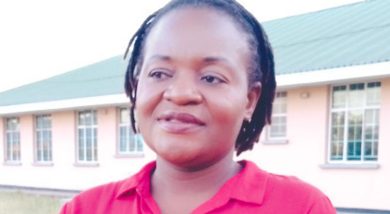K20bn bank fraud case fate Jan 28
Parties to the K20 billion bank fraud case will have to wait until January 28 when High Court of Malawi Judge Sylvester Kalembera will decide on a preliminary application that could decide the way forward.
The judge indicated the judgement day on T after hearing oral submissions from the applicants and the State to have Export Development Fund (EDF), a division of the Reserve Bank of Malawi (RBM), struck off the list of parties to the case.

In the preliminary application, first accused person Abdul Rehman Abdullah and second accused Rizwana Abdul Rehman argue that EDF had no legal mandate to lend money in 2016 because it was not registered at the time it extended the loan to Cotton Ginners Africa Limited. The two were directors at Cotton Ginners Africa Limited.
But the State through Director of Public Prosecutions Steven Kayuni asked the court to dismiss the application in its entirety.
Kalembera, who heard the matter in chambers on Thursday, directed parties to the case to file their final written submissions by January 19 2022.
The judge said he will deliver judgement on the application on January 28.
In the case, Cotton Ginners borrowed K8.5 billion from Standard Bank Malawi plc, K4 billion from EDF, K3.4 billion from Ecobank Malawi Limited, K4.4 billion from CDH Investment Bank Limited and K250 million from National Bank of Malawi plc.
Lawyer representing the applicants, Fostino Maele, submitted that his clients noted EDF was only issued an operating licence on September 20 2021, three weeks after RBM Governor Wilson Banda told Public Accounts Committee of Parliament that EDF had no licence during the past nine years of its operations.
Reads the application in part: “Under the Financial Services Act, it is a criminal offence for any person to operate a financial institution or offer any financial service without the requisite licence.
“The contract between EDF and CGAL [Cotton Ginners Africa Limited] for EDF to lend money to CGAL was blatant violation of a clear statutory prohibition which prohibits any person from offering financial services without the requisite licence.
“The contract between EDF and CGAL was, therefore, illegal and basically unenforceable at law.”
But in an interview, Kayuni said the State has asked the court to dismiss the application because the issues raised in the application do not fall within the provisions that can influence a court to throw out a case.
He said: “The law prescribes that there is a way and procedure that a trial can be dismissed. We will wait for the honourable court to make its decision on how the matter proceeds.”
Abdullah and Rizwana alongside seven other accused persons are suspected to have defrauded EDF and the commercial banks through loans obtained in 2016.
The applicants are answering charges of conspiracy to defraud, obtaining credit by false pretences, fraudulent trading by a company and money laundering.
In February 2018, High Court of Malawi Commercial Division Judge Michael Mtambo declined to declare bankrupt Cotton Ginners Africa following the accused persons’ application.
The ruling meant the commercial banks were at liberty to sell the company’s assets which were valued at K10 billion.
It emerged in court that in 2018 Cotton Ginners Africa total liabilities stood at K23.6 billion against K10 billion assets. Thus, the company required K13.2 billion to return to solvency.
Abdullah, a Pakistan national, was brought into the country on September 19 2017 and was arrested immediately after landing at Chileka International Airport in Blantyre.
Malawi Police Service Fiscal and Fraud Section interrogated him for hours before the court declined to hear his bail application at the time.
In a move to recover their money and save their reputation, the local banks teamed up to object the bankruptcy application remaining directors of Cotton Ginners filed at the High Court’s Commercial Court Division in Blantyre.





